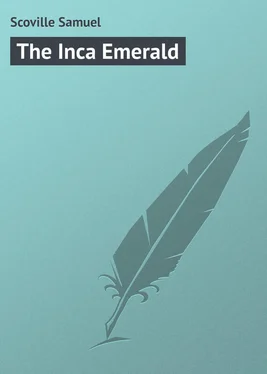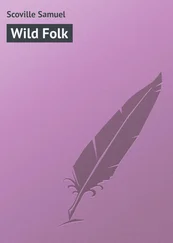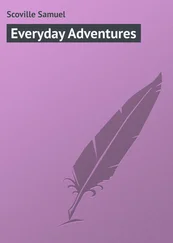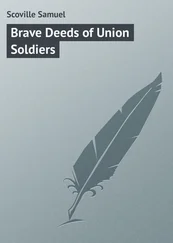Samuel Scoville - The Inca Emerald
Здесь есть возможность читать онлайн «Samuel Scoville - The Inca Emerald» — ознакомительный отрывок электронной книги совершенно бесплатно, а после прочтения отрывка купить полную версию. В некоторых случаях можно слушать аудио, скачать через торрент в формате fb2 и присутствует краткое содержание. Жанр: Прочие приключения, foreign_prose, на английском языке. Описание произведения, (предисловие) а так же отзывы посетителей доступны на портале библиотеки ЛибКат.
- Название:The Inca Emerald
- Автор:
- Жанр:
- Год:неизвестен
- ISBN:нет данных
- Рейтинг книги:4 / 5. Голосов: 1
-
Избранное:Добавить в избранное
- Отзывы:
-
Ваша оценка:
- 80
- 1
- 2
- 3
- 4
- 5
The Inca Emerald: краткое содержание, описание и аннотация
Предлагаем к чтению аннотацию, описание, краткое содержание или предисловие (зависит от того, что написал сам автор книги «The Inca Emerald»). Если вы не нашли необходимую информацию о книге — напишите в комментариях, мы постараемся отыскать её.
The Inca Emerald — читать онлайн ознакомительный отрывок
Ниже представлен текст книги, разбитый по страницам. Система сохранения места последней прочитанной страницы, позволяет с удобством читать онлайн бесплатно книгу «The Inca Emerald», без необходимости каждый раз заново искать на чём Вы остановились. Поставьте закладку, и сможете в любой момент перейти на страницу, на которой закончили чтение.
Интервал:
Закладка:
Jud was much amused. "You always were a fussy eater, Bill," he remarked from the porch. "I remember you wouldn't eat mountain-lion meat up in the North when we were after the pearl. You ought to pattern after Joe. He don't find fault with his food."
"All I want about food," grunted Joe, "is enough."
That night the whole party slept side by side in hammocks swung in a screened veranda in the second story.
During the night, Jud, who was always a light sleeper, was awakened by a curious, rustling, crackling sound which seemed to come from the storeroom, which opened into the sleeping-porch. After listening awhile he reached over and aroused Professor Ditson, who was sleeping soundly next to him.
"Some one's stealin' your grub," he whispered.
The professor stepped lightly out of his hammock, followed by Jud and the boys, who had been waked up by the whispering. Opening the door noiselessly, the scientist peered in. After a long look, Professor Ditson turned around to find Jud gripping his revolver and ready for the worst.
"You can put up your gun," the scientist growled. "Bullets don't mean anything to thieves like these, and he flashed a light on a strange sight. On a long table stood native baskets full of cassava, that curious grainlike substance obtained from the root of the poisonous manihot and which takes the place of wheat in South America. The floor was covered with moving columns of ants, large and small, which had streamed up the legs of the table and into the baskets. Some of them were over an inch long, while others were smaller than the grains they were carrying. The noise which had aroused Jud had been made by their cutting off the dry leaves with which the baskets were lined, to use in lining their underground nest. Professor Ditson told them that nothing could stop an ant-army. Once on the march, they would not turn back for fire or water and would furiously attack anything that tried to check them. "A remarkably efficient insect," concluded the professor, "for it bites with one end and stings with the other."
"This is what I call a nice quiet night!" murmured Jud, as he went back to his hammock. "Sea-devils, snakes, lizards – and now it's ants. I wonder what next?"
"Next," however, was daylight, blazing with the startling suddenness of the tropics, where there is no dawn-light. With the light, the tumult of the night ceased, and in place of the insect din came a medley of bird-notes. When Jud opened his eyes Professor Ditson's hammock was empty, for the scientist usually got up long before daylight, and through the open door strutted a long-legged, wide-winged bird, nearly three feet tall, with a shimmering blue breast and throat. Without hesitating, she walked over to Jud's hammock and, spread her wings with a deep murmuring note, made a low bow.
"Good morning to you," responded Jud, much pleased with his visitor.
The bird bowed and murmured again and allowed him to pat her beautiful head as she bent forward. Then she went to the next hammock and the next and the next, until she had awakened all of the sleepers, whereupon, with deep bows and courtesies and murmurings, she sidled out of the room.
"Now, that," said Jud, as he rolled out of the hammock and began to look for his shoes, "is an alarm-clock worth having!"
Pinto, the Mundurucu, who appeared at this moment with a pail of spring water, told them that the bird was a tame female trumpeter which he had picked up as a queer, frightened little creature, all legs and neck, but which had become one of the best-loved of all of his many pets. Each morning the tame, beautiful bird would wander through the house, waking up every sleeper at sunrise. When Pinto took trips through the forest the bird always went with him, traveling on his back in a large-meshed fiber bag; and when he made camp it would parade around for a while, bowing and talking, and then fly up into the nearest tree, where it would spend the night. Tente, as it was named, was always gentle except when it met a dog. No matter how large or fierce the latter might be, Tente would fly at it, making a loud, rumbling noise, which always made the dog turn tail and run for its life.
As Pinto started to fill the pitchers, Will, the bird expert of the party, began to ask him about some of the songs which were sounding all around the house. One bird which squalled and mewed interested him.
"That bird chestnut cuckoo," said Pinto. "It have the soul of a cat."
And as Will listened he could well believe it. A little farther off, another bird called constantly, "Crispen, Crispen, Crispen."
"One time," narrated the Indian, "a girl and her little brother Crispen go walking in the woods. He very little boy and he wander away and get lost, and all day and all night and all next day she go through the woods calling, 'Crispen! Crispen! Crispen!' until at last she changed into a little bird. And still she flies through the woods and calls 'Crispen!'"
At this point, Jud finally found his missing shoes and started to put one on, but stopped at a shout from the Mundurucu.
"Shake it out!" warned Pinto. "No one ever puts on shoes in this country without shaking out."
Jud did as he was told. With the first shoe he drew a blank. Out of the second one, however, rattled down on the floor a centipede fully six inches long, which Pinto skillfully crushed with the heavy water-pitcher. Jud gasped and sank back into his hammock.
"Boys," he said solemnly, "I doubt if I last out this trip!"
CHAPTER III
The Vampires
After breakfast, Professor Amandus Ditson called the party together for a conference in a wide, cool veranda on the ground floor.
"I should like to outline to you my plan of our expedition," he announced precisely.
Jud gave an angry grunt. The old adventurer, who had been a hero among prospectors and trappers in the Far North, was accustomed to be consulted in any expedition of which he was a member.
"It seems to me, Professor Ditson," he remarked aggressively, "that you're pretty uppity about this trip. Other people here have had experience in treasure-huntin'."
"Meaning yourself, I presume," returned Professor Ditson, acidly.
"Yes, sir!" shouted Jud, thoroughly aroused, "that's exactly who I do mean. I know as much about — ouch! " The last exclamation came when Jud brought down his open hand for emphasis on the side of his chair and incidently on a lurid brown insect nearly three inches in length, with enormous nippers and a rounded body ending in what looked like a long sting. Jud jerked his hand away and gazed in horror at his threatening seat-mate.
"I believe I'm stung," he murmured faintly, gazing anxiously at his hand. "What is it?"
"It would hardly seem to me," observed Professor Ditson, scathingly, "that a man who is afraid of a harmless arachnid like a whip-scorpion, and who nearly falls out of a canoe at the sight of a manta-ray disporting itself, would be the one to lead an expedition through the unexplored wilds of South America. We are going into a country," he went on more earnestly, "where a hasty step, the careless touching of a tree, or the tasting of a leaf or fruit may mean instant death, to say nothing of the dangers from some of the larger carnivora and wandering cannibals. I have had some experience with this region," he went on, "and if there is no objection, I will outline my plan."
There was none. Even Jud, who had removed himself to another chair with great rapidity, had not a word to say.
"I propose that we take a steamer by the end of this week to Manaos, a thousand miles up the Amazon," continued the professor. "In the meantime, we can do some hunting and collecting in this neighborhood. After we reach Manaos we can go by boat down the Rio Negros until we strike the old Slave Trail which leads across the Amazon basin and up into the highlands of Peru."
Читать дальшеИнтервал:
Закладка:
Похожие книги на «The Inca Emerald»
Представляем Вашему вниманию похожие книги на «The Inca Emerald» списком для выбора. Мы отобрали схожую по названию и смыслу литературу в надежде предоставить читателям больше вариантов отыскать новые, интересные, ещё непрочитанные произведения.
Обсуждение, отзывы о книге «The Inca Emerald» и просто собственные мнения читателей. Оставьте ваши комментарии, напишите, что Вы думаете о произведении, его смысле или главных героях. Укажите что конкретно понравилось, а что нет, и почему Вы так считаете.












